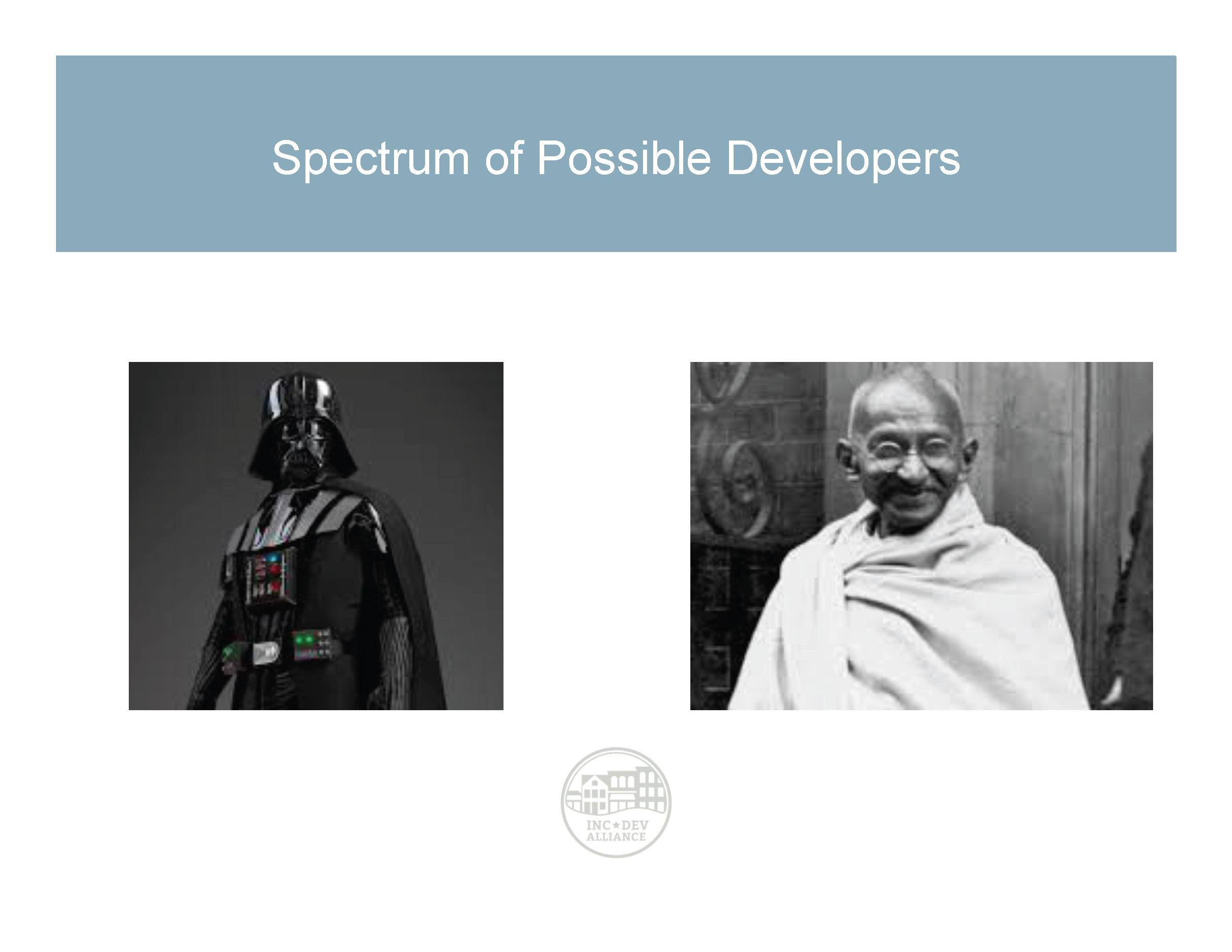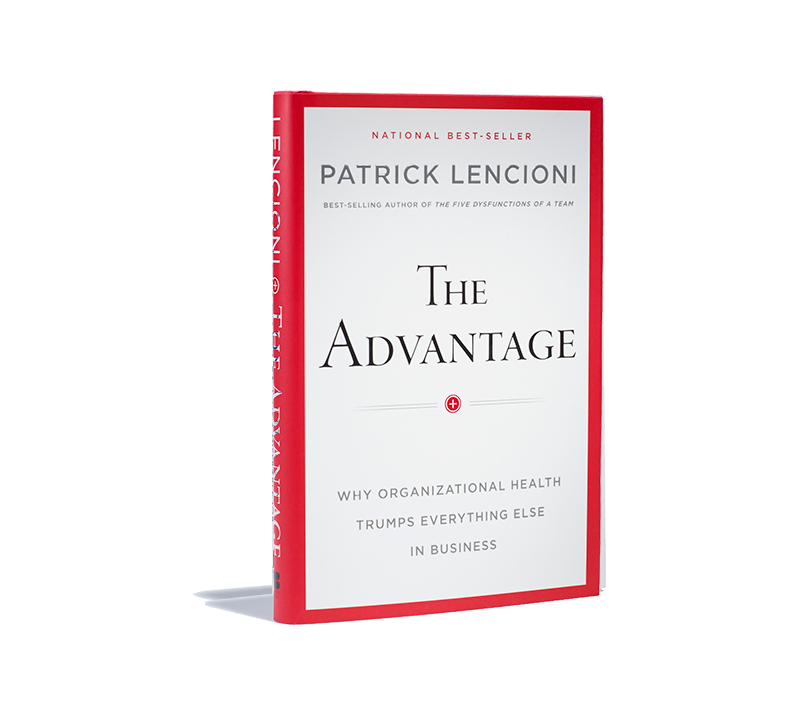
The following is PG-13 version of a piece of an interview which was cleaned up a bit for this piece by Rob Studeville on Public Square. (thanks Rob).
Incremental Development does sound like you need a lot of capital and that there would be a lot of risk if you don't know what it is. If you didn't know what indoor plumbing is and how it works, that might also sound like a crazy risky idea. But Incremental Development is not that complicated nor that risky. The biggest barrier to entry is the initial step. What is the road map? What is the territory? It's a black box in a lot of people's minds.
Developers are held in very low-esteem. I see that as more of a feature than a bug because if the bar is low, it's pretty easy to under-promise and over-deliver. On the spectrum of all possible developers that might arrive in your neighborhood from Mahatma Gandhi to Darth Vader, people expect a developer to resemble Darth Vader.
A small developer just needs to be a noticeably less shitty version of Darth Vader."


 I am currently reading The Advantage by Patrick Lencioni. Lencioni is the author of Death by Meeting, a favorite of mine. The Advantage is about organizational health, something worth considering for any small developer.
I am currently reading The Advantage by Patrick Lencioni. Lencioni is the author of Death by Meeting, a favorite of mine. The Advantage is about organizational health, something worth considering for any small developer.